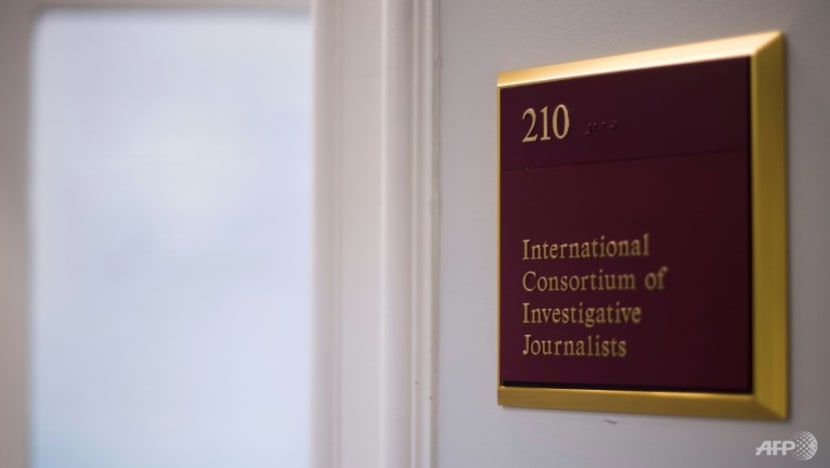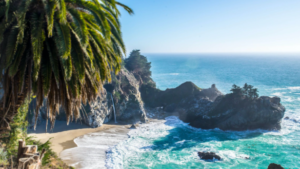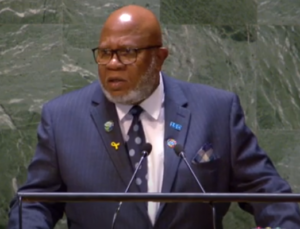UNWTO becomes “UN Tourism”
The World Tourism Organization (UNWTO) enters a new era with a new name and brand: UN Tourism. With this new brand, the Organization reaffirms its status as the United Nations specialized agency for tourism and the global leader of tourism for development, driving social and economic change to ensure that “people and planet” are always center stage.
UN Tourism: Transforming tourism for a better worldTo achieve this goal, UN Tourism engaged the services of Interbrand, the leading global branding agency. Interbrand successfully translated the Organization’s renewed vision for tourism into a new visual identity and brand narrative.
This involved renaming the Organization, transitioning from UNWTO to UN Tourism. At the same time, a new brand narrative was meticulously crafted, one that seamlessly aligns with UN Tourism’s central mission and priorities. This narrative pivots around three main messages: the UN as a global altruistic organization, the notion of connecting humans around the world, and the concept of proactivity and movement.
Enhancing the well-being of individuals, safeguarding the natural environment, stimulating economic advancement, and fostering international harmony are key goals that are the fundamental essence of UN Tourism
By moving away from acronyms, UN Tourism adopts a more approachable stance and capitalizes on its strengths: the “UN”, signifying authority, and tourism, a simple and relatable concept for all. This change has been endorsed by the Organization’s membership, highlighting its united support for the profound transformation and reinvention of UN Tourism in recent years, as it has become more agile, visible, and ever closer to its Member States, partners and the sector as a whole.
With 160 Member States and hundreds of private sector affiliates, UN Tourism has its headquarters in Madrid, Spain, and Regional Offices in Nara (Japan) covering Asia & Pacific, Riyadh (Saudi Arabia) for the Middle East, as well as forthcoming Regional Offices for the Americas (Rio de Janeiro, Brazil) and Africa (Morocco). Its priorities center on promoting tourism for sustainable development in line with the UN’s 2030 Agenda for Sustainable Development and its 17 Global Goals. UN Tourism promotes quality education, supports decent jobs in the sector, identifies talent and drives innovation and accelerates tourism climate action and sustainability . – UN Tourism Jan. 2024
TAT launches
“Thais Always Care” Campaign
“The Tourism Authority of Thailand launches ‘Thais Always Care’ campaign in collaboration with other organizations to ensure tourists’ safety and enhance positive image.”
The “Thais Always Care” online communication campaign was officially launched by the Tourism Authority of Thailand (TAT) in collaboration with the Tourist Police Bureau, Grab Taxi (Thailand), and Central Pattana (CPN) to ensure the safety and welcome of tourists from around the world. The campaign aims to provide seamless travel experiences for visitors to Thailand while also reinforcing the positive image of the country as a safe destination.
The campaign reflects Thailand’s renowned hospitality and warmth to visitors, showcasing the country as a desirable destination for tourists. “CARE” stands for Compassion, Assistant, Relief, and Elevate, encompassing the generosity of the Thai people and their commitment to providing a safe and enjoyable travel experience for tourists.
Partners involved in the campaign have strengthened their safety measures and are utilizing technology to ensure the safety of tourists in Thailand. This includes installing CCTV cameras, implementing strict security checks at department stores, and utilizing technology like the “POLICE I LERT U” application to offer emergency assistance to international visitors. The campaign will also involve working with international KOLs to enhance the positive image of Thailand’s tourism assets and reinforce the country’s reputation as a safe destination. -Tourism Authority of Thailand
China’s resort island receives
90 m tourists in 2023
More than 90 million domestic and overseas tourists visited south China’s tropical island province of Hainan in 2023, up 49.9 percent year on year, local authorities said .
Hainan’s total tourism revenue surged 71.9 percent year on year to about 181.3 billion yuan (about 25.5 billion U.S. dollars) in 2023, according to the provincial department of tourism, culture, radio, television and sports.
Last year, Hainan experienced rapid development in cruise tourism. Cruises to the Xisha Islands in the South China Sea saw 400 trips, up 277.8 percent year on year, and received 149,400 domestic tourists, up 405.33 percent.
This year, Hainan aims to receive 99 million tourists and its tourism revenue is expected to reach 207 billion yuan. The province aims to receive more than 1 million inbound tourists in 2024.
China aims to build Hainan into an international tourism and consumption center by 2025 and a globally influential tourism and consumption destination by 2035. – Xinhua
Vietnam to welcome 17-18
million tourists this year
Việt Nam’s tourism industry has set a target to welcome 17-18 million foreign visitors in 2024, approaching the pre-pandemic record in 2019 when COVID-19 had yet to disrupt global travel.
In 2023, the figure hit 12.6 million, surpassing the initial target set earlier in the year (before China, which accounted for a third of foreign arrivals to Việt Nam pre-pandemic, announced reopening plans) by 57 per cent and achieving the adjusted goal of 12-13 million.
The number of domestic travellers, meanwhile, stood at 108 million, up 6 per cent compared to the set target. Tourism activities generated about VNĐ678 trillion (US$27.85 billion) in revenue, 4.3 per cent higher than the yearly plan.
Despite substantial recovery in 2023, the Việt Nam National Authority of Tourism (VNAT) said the domestic tourism recovery will still face challenges in the year ahead. This is particularly true in the context of the unpredictable global developments stemming from economic uncertainties, regional conflicts and climate change.
Việt Nam’s socio-economic conditions remain stable; the economy continues to grow and inflation has been kept in check. But the persistent threat of disease and natural disasters are likely to create uncertainty affecting production, business activities and the daily lives of citizens.
According to forecasts from the UN World Tourism Organisation and the World Travel and Tourism Council, international travel activities may fully recover by the end of 2024, reaching the levels achieved in 2019. However, the recovery is expected to be uneven across different regions.
The ever-changing demands of international tourists require higher standards in product quality, diversity and unique experiences. The trends of integrating information technology, artificial intelligence and digital transformation are envisioned to drive the emergence of new forms of tourism.
Based on these analyses and projections, Việt Nam aims to serve 17-18 million foreign and 110 million domestic visitors this year, with an expected total revenue from tourism nearing VNĐ840 trillion.
To achieve the stated objectives, Minister of Culture, Sports and Tourism Nguyễn Văn Hùng has instructed the VNAT to continue focusing on advising and improving the institutional framework, policies, reviewing identified deficiencies for adjustment, and international commitments in the field of tourism. Collaboration with other ministries and sectors is emphasised to formulate policies for developing various types of products such as agricultural tourism and digital transformation in tourism. He also noted the need for attention on strengthening tourism statistics and digital transformation to enhance the effectiveness of data collection, providing reliable figures to efficiently support tourism policy planning.
The ministry also calls for enhanced training for tourism officials and workers to meet requirements of new situations, especially in terms of language proficiency and technology expertise. — VNS
Global Medical Tourism market
USD 136.93 billion in 10 years
Newark, Jan. 01, 2024 (GLOBE NEWSWIRE) — The Brainy Insights estimates that the USD 20.07 billion in 2022 global Medical Tourism market will reach USD 136.93 billion by 2032. There is a growing trend towards health and wellness tourism, with individuals seeking medical treatments, preventive care, wellness programs, and holistic health experiences. Medical tourism destinations can capitalize on this trend by offering comprehensive health and wellness packages.
Furthermore, integrating digital health technologies, including telemedicine, virtual consultations, and electronic health records, can enhance the accessibility and coordination of medical tourism services. Digital platforms can streamline pre-travel consultations, post-treatment follow-ups, and information exchange between healthcare providers and patients. Introducing new and advanced medical treatments, therapies, and procedures can attract medical tourists seeking cutting-edge healthcare solutions. Countries and healthcare providers that stay at the forefront of medical innovation can position themselves as leaders in the industry.
In addition, customized and personalized medical tourism packages catering to individual patient’s unique needs and preferences present an opportunity for service providers. Tailoring experiences that include cultural activities, recovery retreats, and concierge services can set providers apart in a competitive market.
Besides, wellness tourism, including genetic testing and personalized health assessments, is gaining traction. Medical tourism destinations can offer specialized wellness packages, including genetic evaluations and preventive health screenings, to attract individuals interested in proactive healthcare.
China eases visa application for US tourists
BEIJING: China will simplify visa applications for tourists from the United States from Jan 1, cutting the documents required, according to a notice on Friday (Dec 29) on the website of the Chinese embassy in Washington.
The move is the latest by China to revive tourism and boost the world’s second-largest economy following a slump during the COVID-19 pandemic.
Tourist visa applicants in the US will no longer need to submit air ticket bookings, hotel reservations or an invitation letter, the embassy’s notice said.
Beijing earlier cleared the way for passport holders from France, Germany, Italy, the Netherlands, Spain and Malaysia to visit the country without visas from Dec 1.Visa-free treatment will run for 12 months, during which tourists from those six countries can visit China for up to 15 days. China also expanded its visa-free transit policy to 54 countries in November.
The number of inbound tourists to the country plummeted during the pandemic due to the country’s strict COVID-19 control policies.
China’s visa-free policy facilitates
travels from 6 countries
Around 214,000 people from France, Germany, Italy, the Netherlands, Spain, and Malaysia entered China in December 2023, an increase of 28.5 percent compared with November, according to the National Immigration Administration (NIA).
China’s unilateral visa-free policy for ordinary passport holders from these countries took effect on December 1, facilitating inbound travels from there.
Of these inbound trips, 118,000 were made by ordinary passport holders without a visa, accounting for 55.1 percent of all inbound trips from the six countries during this period. Around 91,000 visa-free entries were made for travel and business.
Thanks to the visa-free policy, ports in the southern Chinese city of Nanning welcomed many inbound travelers. Data showed that 121 inbound travel groups of nearly 2,800 people entered China through ports in Nanning in December.
Since the inception of the visa-free policy, ports in Beijing had, by December 31, witnessed more than 12,000 visa-free entries from the relevant countries.
The NIA pledged more optimized entry-exit management policies for foreigners to facilitate their business, study, work, and life in China.
International flights to China have picked up since Beijing dropped COVID-19 restrictions a year ago but are still only at 60 per cent of 2019 levels. – Xinhua













